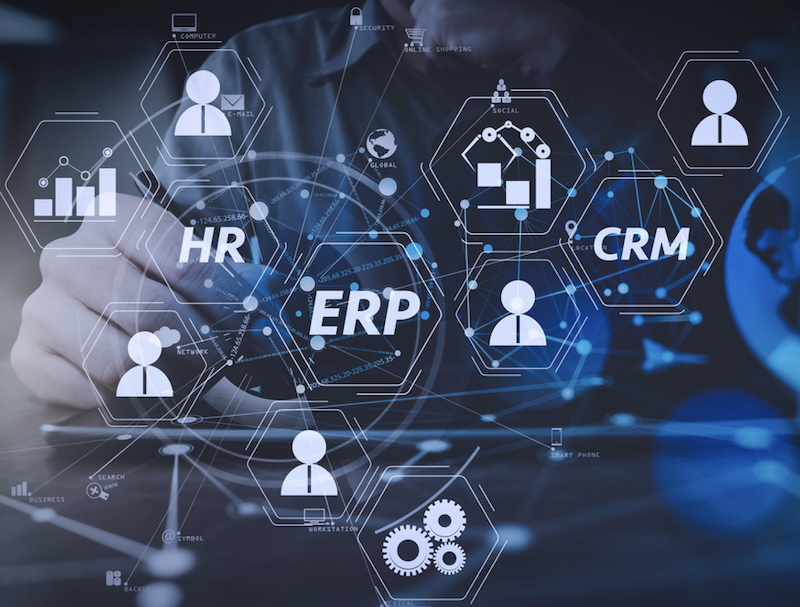ERP and CRM are among the most commonly recognized acronyms in business software — and the least understood. These platforms are database repositories designed to provide an organization with better controls and assist in planning for growth. But both platforms focus on different aspects of the business, meaning neither can provide all the information desired. In addition, both can be pricey to acquire. So how do you choose between ERP and CRM?
Let’s start by defining, in broad terms, what each software is.
Enterprise Resource Planning (ERP) evolved from material requirement planning (MRP) which manufacturers mostly used to manage all resources to manage a business successfully. This has morphed into a finance data gathering platform including accounts payable, receivables, payroll, and more. However, it also integrates data from procurement, production, distribution, and fulfillment as well.
Customer Relationship Management (CRM) manages data on the entire customer experience. The CRM ties together all the data on every customer interaction from the initial sale, repeat sale, complaints, returns, frequency of sale, and more. This data is vital to marketing, sales, and customer service.
Comparative Value of ERP and CRM
Here’s the bottom line. At some point, most businesses are going to need both software systems. Additionally, these solutions are significant investments. If you are a small business ready to move on from Excel spreadsheets, you will want the platform that offers the biggest bang for your buck until you reach a size where both become essential.
So, here are the two significant benefits that ERP and CRM platforms provide respectively:
- ERP. A single, shared database for all financial and operational records allows for faster, more granular reporting. Ad hoc reports requested by leadership can be delivered on the fly. Books can be closed faster. Having a single database rather than multiple siloed databases allows for discovering financial insights without requesting assistance from IT or accounting. In short, ERP allows organizations to make data-backed decisions far quicker than before.
- CRM. Marketing, sales, and customer service are the principal beneficiaries of a CRM. A single database integrates all the reporting on every interaction of every customer. Aside from measuring sales performance, CRM allows for identifying customers to target for repeat sales, formulating promotional campaigns, and identifying issues with customer service. And, like ERP, the data is accessible to all authorized employees’ For example, a salesperson can analyze a customer’s history and determine if they are a candidate for an upsell or cross-sale and when to propose it.
So, which platform will work best for you today? A company with a small set of high-value customers and complex financials might look to ERP software as a general rule. Conversely, a company with a broad customer base and straightforward financial will want to consider a CRM. Eventually, you will need both to fully take advantage of the shared data and spur profitable growth.
Not sure which way to go? Schedule a free consultation with us to review your business plans and strategies. At ASCEND Business Advisory, we help you get focused on your continued growth and sustainability. Call 888-297-3321 to get started.

